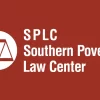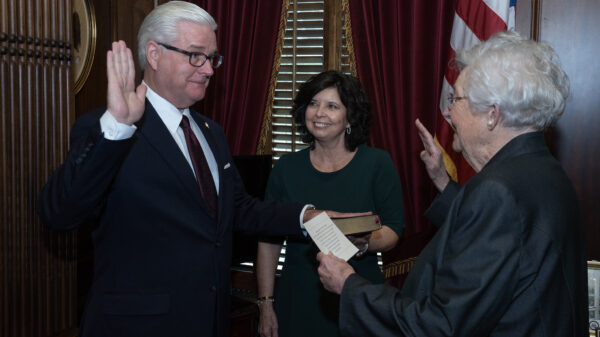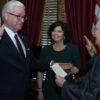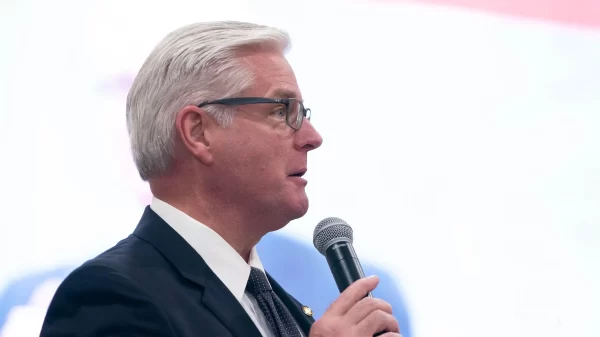By Patrick Jackson
Alabama Political Reporter
On Wednesday, the Nurse Practitioners bill, SB 229, was open to a public hearing in the Senate Health Committee. The room was packed to capacity with proponents and opponents of the bill.
Sponsored by Health Committee Chairman, Senator Greg Reed (R-Jasper) presented his bill to the committee and a public hearing immediately followed. According to the sponsor, the bill is designed to “gives additional prescription writing privileges to increase the scope of practice for nurse practitioners in the state of Alabama.” Senator Reed also states that “this legislation has been worked on for about a year and a half. I, at the pro temp’s request was put on a study group that analyzed for a year, different ideas within healthcare in the state of Alabama that can increase access, specifically in rural areas. Their number one suggestion was the increase scope of practice for nurse practitioners.”
SB229 would allow for the prescribing of certain schedules of controlled substances by certified registered nurse practitioners and certified nurse as well as authorize the Board of Medical Examiners to create a Limited Purpose Schedule II Permit for certain persons who hold a Qualified Alabama Controlled Substances Registration Certificate (QACSC).
Reed said he sponsored the bill because “we have people in rural communities who are not receiving proper care because they do not have a close proximity to medical providers. Increasing the scope of practice for nurse practitioners will benefit communities by being able to be seen by proper medical providers.” After Reed presented the bill a public hearing followed.
“We have conducted scientific and thorough studies, over 85 percent of our nurse practitioners that we have conducted surveys with have voiced that they want expansion of their scope of practice to include the ability to write prescriptions for controlled substances 3 through 5. Regardless of who issues the certificate, they would like to issue prescriptions for controlled substances”, stated by Amy Wabanga Co-Legislative Chair for the Nurse Practitioner Alliance of Alabama.
Larry Dickson, Director of the Alabama Board of Medical Examiners, expressed the notion of the physicians getting out in front of the Board of Medical Examiners on this issue in support of the bill for collaborative existence between physicians and nurse practitioners and stated a quote by Mahatma Gandhi, “there go my people, I must hurry and catch them for I am there leader.”
Nancy Turnum, a Nurse Practitioner from Dothan Alabama, expressed “that cough syrup that a patient needs, we can’t prescribe it because it has hydrocodone in it. Sometimes that Robitussin just doesn’t get it and they need that medicine at night to breathe. She went on further to state that “there are patients who come in from the fields who have cut their hands, and we stitch their hands up but can’t give them anything to control their pain adequately. There are patients who are elderly, who have fractured their backs and we can’t prescribe pain medication to adequately control that pain. These patients are getting delayed in their pain relief. Patients with diabetes who have painful diabetic nephropathy, we can’t prescribe pain medication because it has Lyrica in it.”
Cindy Cook, Family Nurse Practitioner from Huntsville, Alabama stated that although the increases of scope for nurse practitioners are needed “patient access isn’t assured.” She also stated that this bill “creates a mechanism for the Board of medical Examiners to Certify and approve nurse practitioners for prescribing controlled substances prescription certification. She accused the bill of leaving the rules process to the Board of Medical Examiners without the oversight of the board of nursing and increases the disciplinary oversight of the Board of Medical Examiners over Nurse Practitioners.”
An amendment offered by Reed was by the Committee on pg. 12, line 9, deleting “which shall be similar to”, and insert “shall”, so that “nurse practitioners would pay the same amount as a physician assistant for certification.”
The committee approved the amendment and unanimously passed the bill with a favorable report.















































